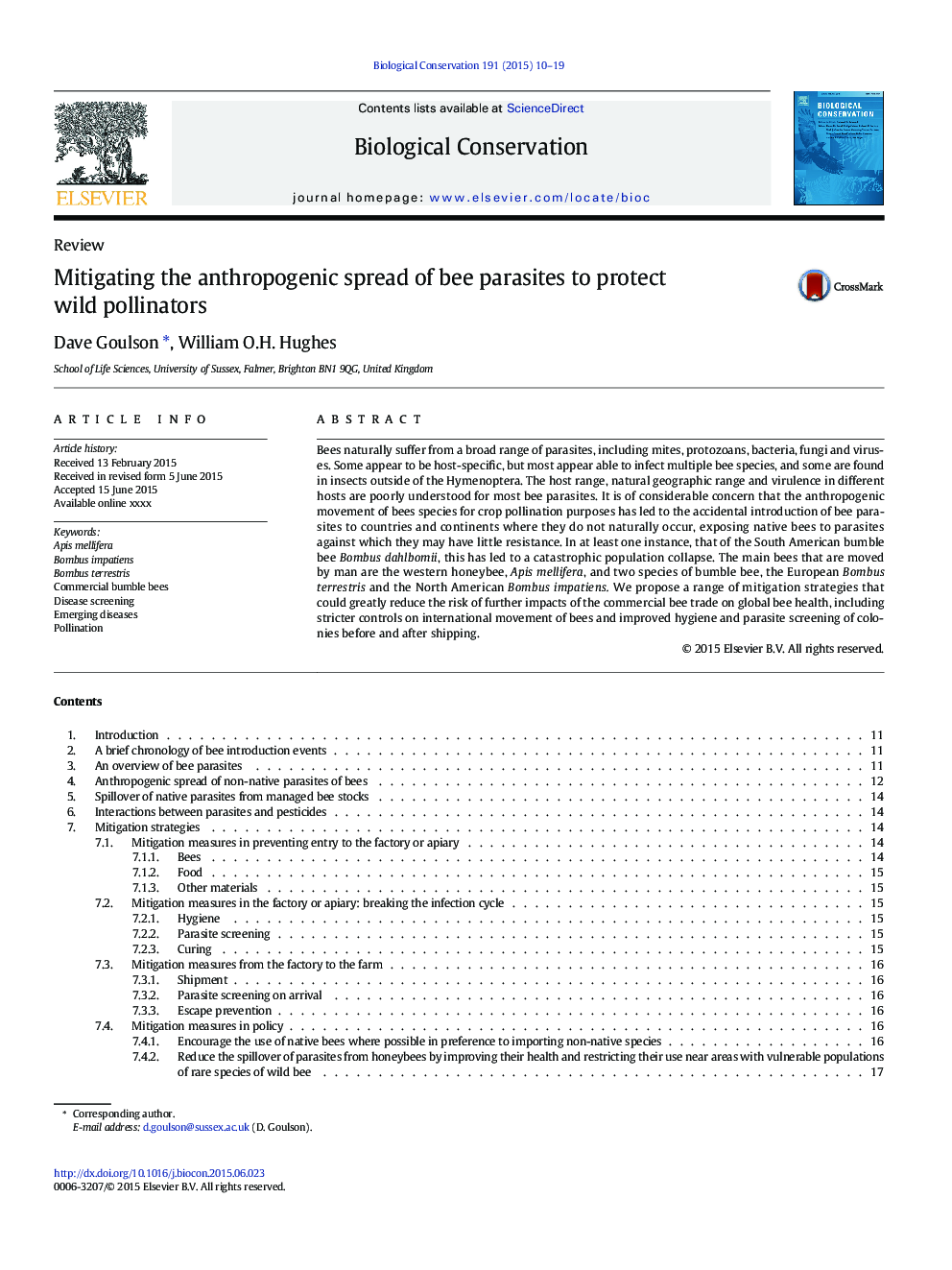| کد مقاله | کد نشریه | سال انتشار | مقاله انگلیسی | نسخه تمام متن |
|---|---|---|---|---|
| 6298891 | 1617910 | 2015 | 10 صفحه PDF | دانلود رایگان |
عنوان انگلیسی مقاله ISI
Mitigating the anthropogenic spread of bee parasites to protect wild pollinators
ترجمه فارسی عنوان
مقابله با گسترش آنتی بیوتیک انگل زنبور عسل برای محافظت از گرده افشان وحشی
دانلود مقاله + سفارش ترجمه
دانلود مقاله ISI انگلیسی
رایگان برای ایرانیان
کلمات کلیدی
موضوعات مرتبط
علوم زیستی و بیوفناوری
علوم کشاورزی و بیولوژیک
بوم شناسی، تکامل، رفتار و سامانه شناسی
چکیده انگلیسی
Bees naturally suffer from a broad range of parasites, including mites, protozoans, bacteria, fungi and viruses. Some appear to be host-specific, but most appear able to infect multiple bee species, and some are found in insects outside of the Hymenoptera. The host range, natural geographic range and virulence in different hosts are poorly understood for most bee parasites. It is of considerable concern that the anthropogenic movement of bees species for crop pollination purposes has led to the accidental introduction of bee parasites to countries and continents where they do not naturally occur, exposing native bees to parasites against which they may have little resistance. In at least one instance, that of the South American bumble bee Bombus dahlbomii, this has led to a catastrophic population collapse. The main bees that are moved by man are the western honeybee, Apis mellifera, and two species of bumble bee, the European Bombus terrestris and the North American Bombus impatiens. We propose a range of mitigation strategies that could greatly reduce the risk of further impacts of the commercial bee trade on global bee health, including stricter controls on international movement of bees and improved hygiene and parasite screening of colonies before and after shipping.
ناشر
Database: Elsevier - ScienceDirect (ساینس دایرکت)
Journal: Biological Conservation - Volume 191, November 2015, Pages 10-19
Journal: Biological Conservation - Volume 191, November 2015, Pages 10-19
نویسندگان
Dave Goulson, William O.H. Hughes,
